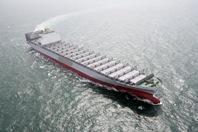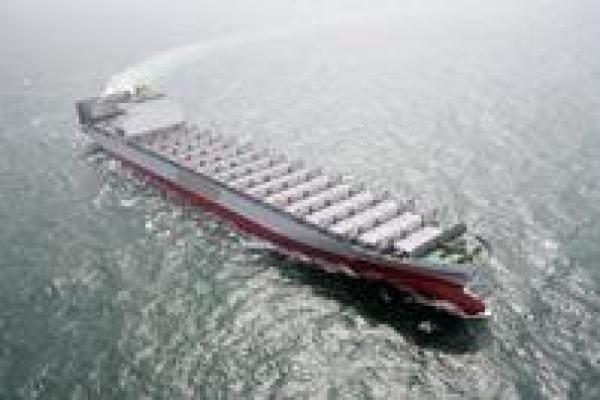
Steamship Mutual
Published: September 01, 2010

Vitol S.A. v Capri Marine Limited and Others (N. 2) (The Thor) [2010] EWHC 458 (Comm)
The underlying claim in this matter arose in 2000. Vitol chartered the vessel “Alambra” from Capri. The charter was subject to English law and jurisdiction. During loading, the vessel leaked oil from a hole in her shell plating causing pollution and cargo loss. The vessel was arrested at the load port by the port authorities.
Vitol brought a claim for US$7 million in the Commercial Court. Some months later a confidential agreement was reached between Capri and Vitol which allowed Capri to secure the release of the vessel from the arrest by the port authorities. Capri paid Vitol US$500,000 without prejudice to liability and Vitol agreed not to arrest the vessel and, more significantly, not to interfere with any sale of the vessel nor to attach or injunct any sale proceeds. However the agreement did not prevent Vitol from taking any other action to secure or satisfy its claim.
Back to the main action and just before an application for specific disclosure was heard, Capri admitted liability. Subsequently, at the eleventh hour, quantum was agreed at US$6.1 million. The trial judge ordered Capri to pay a further US$500,000 into court to allow Capri to pursue an application that has no relevance for our purposes. This aspect was eventually dropped by Capri when they claimed their funds were exhausted. Vitol applied for and obtained a worldwide freezing order against Capri and gave the usual undertaking:
“…not without the permission of the court to use any information obtained as a result of this order for the purpose of any civil or criminal proceedings, either in England or Wales or in any other jurisdiction…”
Vitol obtained an order for payment out of the US$500,000 lodged at Court and had a freezing order in the sum of US$6.25 million.
Capri is a Maltese company which had one asset, the “Alambra”. Two directors of Capri are Gerassimos and Ioannis Kalogiratos. Capri was managed in Greece by Starlady. Capri and Starlady were in the same beneficial ownership. After the vessel was released from arrest she was sold to Aurora, also managed by Starlady. It later transpired that Aurora was set up solely to facilitate the sale of the vessel for scrap.
In December 2009, Vitol obtained a Rule B attachment against the vessel “Thor” in Maryland. The owners were Spartacus Navigation of Marshall Islands, managed by Primrose, also registered in the Marshall Islands, but with an office in Piraeus. Vitol alleged that “Thor” was in the Kalogiratos Group ownership and sought to pierce corporate veil to demonstrate this. Capri went back to the Commercial Court and sought a decision on 2 issues:
- whether charterers could pursue enforcement in Maryland under local law rather than English law (an anti-suit injunction being sought); and
- whether charterers could rely on documents disclosed in the worldwide freezing order for the purpose of enforcement proceedings in Maryland; ( Vitol had, on an ex parte application, been granted permission by Blair J to rely on such documents in Maryland.)
Mr Justice Tomlinson had no hesitation in dismissing Capri’s application for an anti-suit injunction against Vitol. The action in Maryland was not based upon the charterparty but rather upon the judgment Vitol had obtained against Capri and accordingly no question could arise as to construction of the law and jurisdiction clause in the charter. The dispute in Maryland clearly arose out of the judgment itself and not out of the charterparty with Capri. Both Vitol and Capri would have known the judgment was incapable of enforcement in England as neither had a corporate presence in the jurisdiction. It was expected that enforcement would be dealt with by the Courts of the jurisdiction in which any asset could be found. Capri’s application for an anti-suit injunction was misplaced and they had no standing to bring the application.
Tomlinson J noted that, in any event, the court would have been unlikely to exercise its discretion in Capri’s favour; they were judgment debtors who asserted exhaustion of assets and yet funds were made available to pursue this application rather than to satisfy Vitol’s judgment. The judge called this “an unpromising position from which to seek a discretionary remedy designed to frustrate the search for further assets amenable to enforcement.”
Capri’s second application was no more successful. The thrust of their argument was that the court should only in special circumstances allow documents to be used for a purpose that was collateral to that for which they were disclosed. Tomlinson J held that the proceedings in Maryland were a continuation of the enforcement of the English judgment rather than collateral proceedings. The original disclosure order was made in support of enforcement of the judgment against Capri. Its purpose was to assist in the identification and location of assets against which enforcement of the judgment could be sought.
Capri had also asserted that use of the documents in Maryland would be inappropriate if that court would allow enforcement against a party which as a matter of English law would not be considered liable. Mr Justice Tomlinson referred to Maclaine Watson & Co Ltd v International Tin Council (No.2) [1989] 1 CH and the judgment of Kerr LJ: “it is the policy of the law to assist persons in the position of plaintiffs to obtain the fruits of their judgments..”
The Court said it was just and convenient that Vitol should be permitted to use the documents in support of its attempt to enforce in Maryland.
Article by Sian Morris


